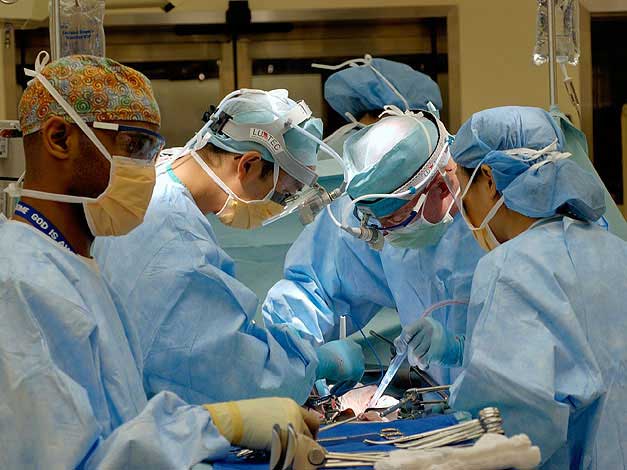CLASSIC (OPEN) SURGERY
In conventional surgery , an incision is made in the abdomen, usually a long one, so that there is enough space for the surgeon to work, that is, to see satisfactorily inside the abdomen and in the area of interest, to be able to put his hands and tools. there and feel completely safe with the result. Open surgery is a necessary initial training step for the specialist surgeon who learns surgical anatomy and principles of surgery, while it still remains the only technique of access and treatment for specific problems. such as in the emergency treatment of multiple injuries with massive intra-abdominal bleeding, in the access of very large tumors of the abdomen, and in emergency vascular surgeries (rupture of the abdominal aortic aneurysm). However , it should no longer be considered a "panacea" for every surgical problem, especially considering the excellent and well-documented results of laparoscopic surgery and, in recent years, robotics (minimally traumatic surgery) , which reduce complications and morbidity. related to open surgery. Many minimally invasive surgeries are now considered gold standard surgeries . and many surgeons argue that these should not be approached openly in the first place. This applies to operations such as laparoscopic cholecystectomy, laparoscopic inguinal hernia repair and laparoscopic appendectomy in general surgery. Our ten years of experience with Robotic Surgery has pushed us to support robotic access as the best choice for septal hernia, abdominal hernia, extensive symphysis, pancreas, spleen, colon, rectum and difficult tumors of the abdomen. The same goes for other specialties such as urology, in which robotics is now considered the gold standard in radical prostatectomy for malignancy .
What matters is that the "most correct technique" is the one that every surgeon knows best and applies it effectively and safely to his patient. Continuous training of the surgeon is ultimately the only factor that will determine whether he correctly adopts the new techniques or prefers to remain attached to the older ones.

(text automatically translated from Greek)
Last Update : 21/4/2022
